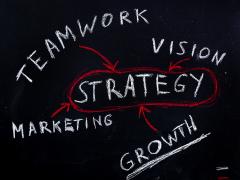Raymond Collins, Sales Executive CSP M365 at Braintree, shares his insight about transformative AI at work. Braintree is a Microsoft Solutions Partner and division of Vox. Raymond works with businesses across South Africa to unlock the potential of modern workplace tools, helping teams get the most out of their Microsoft 365 investment.

Artificial intelligence (AI) is rapidly transforming the way we work. It’s not just about automating repetitive tasks anymore — it’s about enhancing productivity, driving efficiency, and unlocking new ways of working. As AI tools evolve, so too does their ability to collaborate, anticipate needs, and act autonomously. At the forefront of this transformation is Microsoft’s Copilot, an AI-powered assistant that’s fast becoming a core part of the modern digital workplace.
Productivity reimagined
Copilot was first introduced as Bing Chat, an AI tool built on GPT-4, in early 2023. It quickly evolved and was integrated across the Microsoft 365 suite — including Word, Excel, PowerPoint, Outlook and Teams — bringing advanced generative AI capabilities into familiar platforms.
By October 2023, Microsoft CEO Satya Nadella revealed that over a million users across 37,000 organisations were already using Copilot, with adoption accelerating rapidly. As AI becomes a trusted collaborator, rather than just a background assistant, it’s changing not just how we do things — but what’s possible in the workplace.
Agentic AI: Beyond basic support
What sets Copilot apart is its shift from passive tool to agentic AI — meaning it doesn’t just respond to commands; it actively helps shape workflows, summarise meetings, generate content, and make informed suggestions based on context.
For example, users can ask Copilot to draft a project proposal, pull in data from recent emails and meetings, or create a dynamic PowerPoint presentation. It’s capable of pulling relevant information from Microsoft Graph, which includes Outlook, OneDrive, Teams, SharePoint, and more — essentially acting as an intelligent bridge between the user and the full organisational knowledge base.
Copilot Studio: build your own AI agents
With the introduction of Copilot Studio, Microsoft is giving users and businesses the ability to create their own AI-powered copilots tailored to specific workflows and business needs.
These custom agents can be programmed to handle repetitive tasks, interact with business data, and even perform actions — all with minimal coding. Imagine setting up a Copilot that can automatically generate customer-facing reports, check compliance steps, and send status updates to stakeholders — all based on a single user input. That’s the shift from automation to intelligent orchestration.
From insights to action
One of the most compelling features of Copilot is its ability to retrieve and contextualise information on demand. Users can ask natural-language questions like “What were the key decisions from last week’s team meeting?” or “Show me trends in the Q2 sales report,” and receive summarised, accurate results in seconds.
This level of accessibility helps streamline decision-making, surface hidden insights, and break down silos within organisations. It turns static documents and scattered knowledge into dynamic, searchable intelligence.
Driving cultural change, not just tech adoption
While the technology is impressive, true transformation requires more than just deployment — it demands cultural readiness. Businesses must invest in training employees to understand the strengths and limits of AI tools. Copilot is only as effective as the questions you ask it, and the judgement you apply to its answers.
Successful adoption comes down to human-AI collaboration: combining the efficiency of AI with the empathy, ethics, and nuance of human decision-making. It also means embracing a mindset of experimentation — testing what the AI can do, learning from its outputs, and refining usage over time.
Challenges along the way
Despite its capabilities, organisations may encounter a few speed bumps on the road to intelligent collaboration:
- Data hygiene: Copilot relies on access to accurate and well-structured data. Inconsistent or outdated systems can limit its effectiveness.
- Security and compliance: Businesses must ensure that AI tools are integrated in a way that meets industry standards and data protection requirements.
- User readiness: Not all teams are equally prepared to leverage AI. Clear guidance and support will be essential for adoption at scale.
The future: orchestrated intelligence
We’re moving into a future where AI orchestrates work across teams, systems, and platforms. Instead of automating a single action, tools like Copilot will coordinate multiple processes, analyse outcomes, and support complex decision chains.
The goal isn’t to replace people — it’s to empower them. To free up time, remove friction, and create space for higher-value thinking. And as organisations embrace agentic AI, they’ll discover new ways to innovate, compete, and grow.














